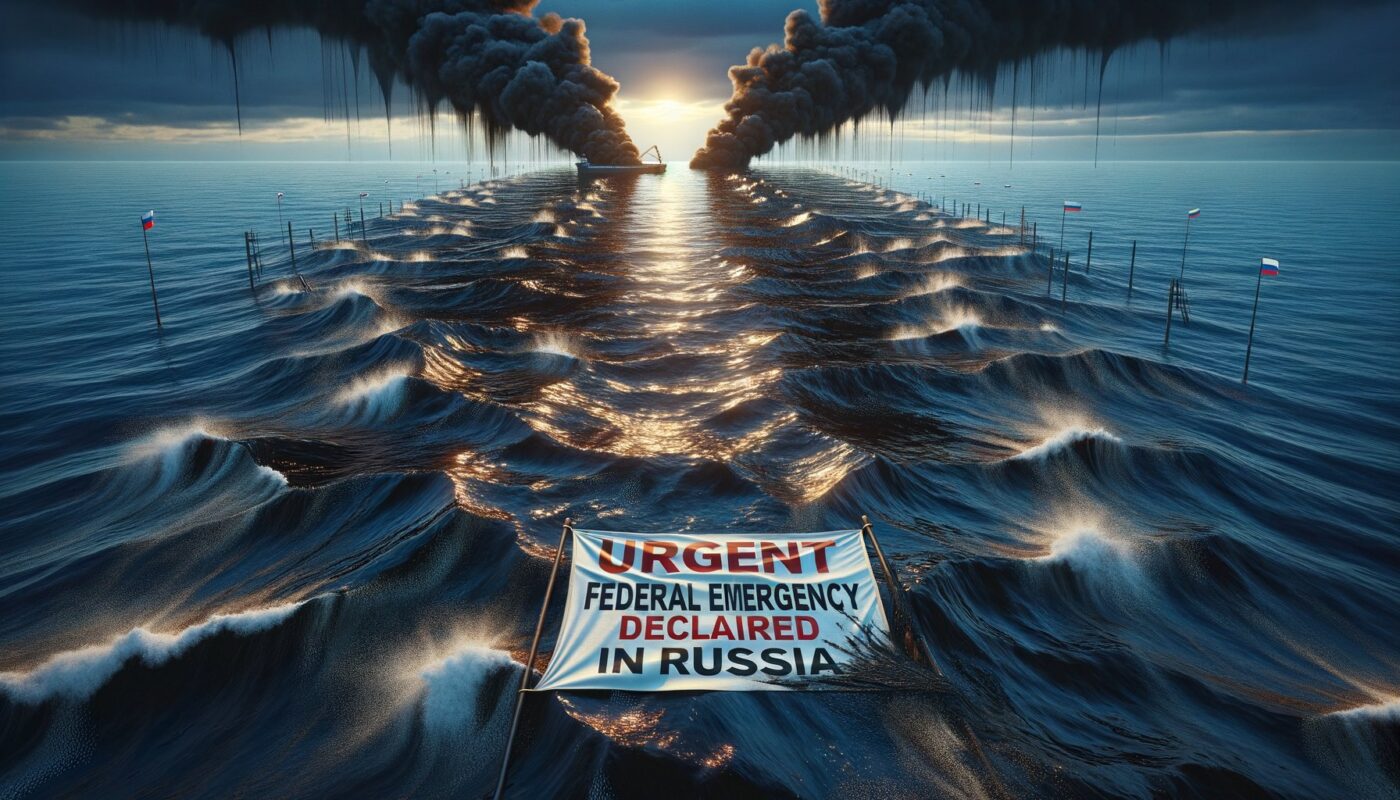In a distressing turn of events, Russia has declared a federal emergency in response to a severe oil spill that has wreaked havoc along the Black Sea coast. This environmentally catastrophic incident has prompted significant action from the Russian government to manage the growing crisis that threatens the local ecosystems and economic stability of affected regions.
Timeline and Escalation of the Oil Spill
The oil spill began on December 15, when two Russian-flagged oil tankers sustained heavy damage during a powerful storm near the Kerch Strait. The incident resulted in the release of thousands of tons of heavy fuel oil, known as mazut, which contaminated approximately 55 kilometers (34 miles) of pristine coastline. Initial efforts to contain the spill by local authorities in the Krasnodar region proved insufficient, forcing the region to declare a state of emergency before the federal government stepped in.
Environmental and Economic Impact
The oil spill has been catastrophic for the Black Sea’s marine environment. According to Viktor Danilov-Danilyan of the Water Problems Institute of the Russian Academy of Sciences, at least 200,000 tons of soil have been contaminated with fuel oil. This pollution threatens to inflict long-term damage on marine biodiversity and disrupts the livelihoods of coastal communities reliant on a vibrant marine ecosystem.
Economically, these regions face potential devastation. Tourism, a critical economic sector, could be severely impacted, with concerns that polluted beaches will deter visitors during the lucrative spring and summer seasons. These fears are compounded by warnings from environmental experts that recovery could be a protracted process, affecting local economies for years.
Government Measures and Coordinated Response
To address the escalating crisis, Alexander Kurenkov, Russia’s Emergency Situations Minister, has initiated the declaration of a federal-level emergency on December 21. This action aims to facilitate a robust response by:
– Mobilizing federal resources and funds.
– Deploying specialized cleanup equipment and trained personnel.
– Coordinating efforts across local, regional, and national agencies.
However, residents have criticized the initial response as disorganized and inadequate, highlighting the need for a prompt and structured plan to tackle such large-scale environmental disasters.
Key Challenges in Cleanup and Restoration
Efforts to remove heavy mazut oil present significant challenges. The task requires advanced technology and expertise, posing a health risk to volunteers and emergency responders due to the toxicity of the substances involved. Long-term, the rehabilitation of marine and coastal ecosystems will demand extensive monitoring, research, and restoration initiatives to ensure complete recovery.
For more detailed insights into Russia’s handling of regional crises, consider exploring our articles on the latest Russia sanctions and the EU’s new sanctions on Russia’s shadow fleet.
As Russia engages in these complex cleanup operations, the international community watches closely, given the potential long-term damage to one of the world’s key environmental and economic zones. For more comprehensive updates on this ongoing situation, check the original reporting from Current Affairs Adda247.
Warning : This information is indicative and without guarantee of accuracy. Consult a professional before making any decision.





